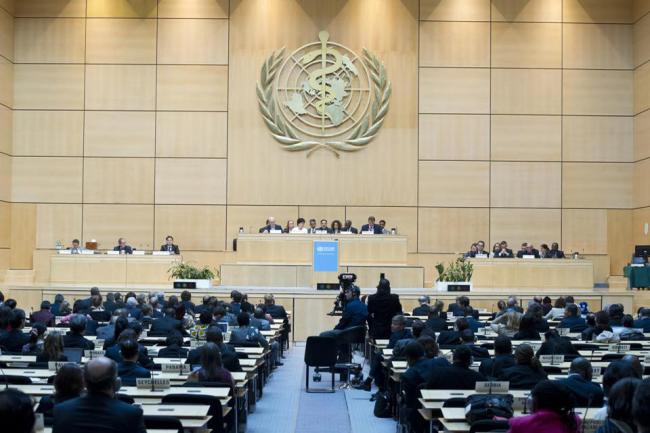
WHO governing body agreed on ‘landmark’ reforms on emergency response
WHO Director-General Dr. Margaret Chan noted that the agency’s governing board had passed several “landmark resolutions and decisions” including three new resolutions passed on tuesday: one on air pollution, one on epilepsy, one laying out the next steps in finalizing a framework of engagement with non-State actors.
Over the weekend, delegates at the 68th World Health Assembly, which had been meeting in Geneva, Switzerland, since 18 May, gave the go-ahead for WHO to “establish an emergency programme, which will be guided by an all-hazards health emergency approach, that emphasizes adaptability, flexibility and accountability, humanitarian principles, predictability, timeliness and country ownership.”
WHO will set up a $100-million contingency fund to provide financing for in-field operations for up to 3 months. The contingency fund will run initially as a two-year pilot and will then be evaluated.
Delegates noted their appreciation for the key coordination role played by WHO in its ongoing work to develop vaccines, diagnostics and drugs for Ebola virus disease.
Also over the weekend, the Assembly endorsed a global action plan to tackle antimicrobial resistance – including antibiotic resistance, “the most urgent drug resistance trend.”
In addition, the Assembly agreed on resolution to improve access to sustainable supplies of affordable vaccines – a key issue for low- and middle-income countries aiming to extend immunization to the entire population.
And today, the delegates adopted a resolution to address the health impacts of air pollution – the world’s largest single environmental health risk.
“Every year 4.3 million deaths occur from exposure to indoor air pollution and 3.7 million deaths are attributable to outdoor air pollution,” WHO said in a press release.
It stated, “This was the first time the Health Assembly had debated the topic.”
The Assembly also asked Member States to strengthen their efforts in providing care for people with epilepsy.
“The resolution calls on the WHO Secretariat to continue to lead and coordinate support to Member States in addressing the global burden of epilepsy so that people with epilepsy can receive timely treatment and can benefit from educational and occupational opportunities, free from stigma and discrimination,” it said.
And finally, the Assembly today welcomed the fact that delegates had reached consensus on many parts of the draft framework of engagement with non-State actors such as non-governmental organizations, private sector entities, philanthropic foundations and academic institutions, noting that it wishes to finalize the framework by the next Health Assembly.
Member States agreed a set of indicators to monitor progress for global nutrition targets to be achieved by 2025 on stunting (low height-for-age), wasting (low weight-for-height), overweight, low birth weight, anaemia, and breastfeeding.
The World Health Assembly is the supreme decision-making body of WHO. It is attended by delegations from all WHO Member States and its main functions are to determine the policies of the Organization, supervise financial policies, and review and approve the proposed programme budget.
Photo: WHO/V. Martin
Support Our Journalism
We cannot do without you.. your contribution supports unbiased journalism
IBNS is not driven by any ism- not wokeism, not racism, not skewed secularism, not hyper right-wing or left liberal ideals, nor by any hardline religious beliefs or hyper nationalism. We want to serve you good old objective news, as they are. We do not judge or preach. We let people decide for themselves. We only try to present factual and well-sourced news.







